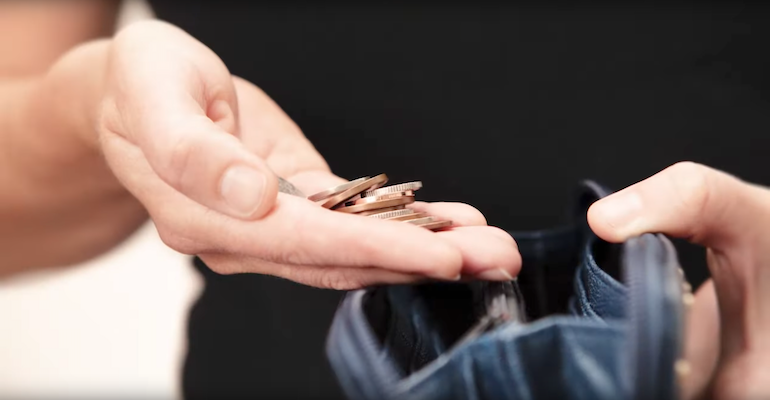FMI-The Food Industry Association is taking action to help boost coin circulation amid continuing shortages caused by the COVID-19 pandemic.
Throughout October, as part of “Get Coin Moving Month,” FMI will work with the U.S. Coin Task Force to urge all Americans to assist fellow citizens and businesses that rely on coins for everyday cash transactions.
The task force was formed in July 2020 to devise strategies to resolve coin supply issues stemming from COVID-related disruptions to normal coin circulation. FMI is a founding member of the task force, which also includes representatives from the U.S. Mint, the Federal Reserve, armored carriers, coin aggregators, the financial sector and retail trade associations. Walmart also is a member.
During the pandemic, much of the $48.5 billion in coins in circulation ended up “sitting dormant” — in change jars, car cupholders, etc. — inside the nation’s 128 million households as people changed their spending habits, making it harder for businesses to support cash transactions, FMI explained. The “Get Coin Moving” campaign aims to spur consumers to return coins into circulation by spending them or depositing or exchanging them at banks or kiosks, easing the crunch on those who most depend on coins: Americans without access to banking services and cash-based small businesses.
To that end, the task force is offering a range of resources and recommendations, including toolkits for retailers and financial institutions, social media graphics to spread the message to the hashtag #getcoinmoving, editable signage for businesses to display, and educational resources for children and families.
“Our country is currently facing a coin circulation problem. In the food retail industry alone, 11% of all transactions are paid in cash,” U.S. Coin Task Force member Jennifer Hatcher, senior vice president and chief public policy officer at FMI, said in a statement. “The best way to address the scarcity of coins impacting our business community and Americans reliant on legal tender for everyday purchases like groceries is to ‘get coin moving’ by spending or depositing the coins people have accumulated prior to and during the COVID-19 pandemic.”
In June 2020, the Federal Reserve announced that it would have to ration coin distribution because of significant declines in coin deposits from depository institutions decreased coin production by the U.S. Mint due to COVID safety measures. At the time, retailers and industry observers nationwide reported that the pandemic curtailed in-store purchases, due to fewer people visiting stores, and pushed more Americans to buy retail goods online. Many consumers also held onto cash and coin.
Also that month, FMI joined with the National Grocers Association and other retail trade groups in a letter to the Fed and the U.S. Treasury Department calling on the government to release more coins from federal inventory or boost coin production to meet immediate needs. The retail organizations noted in the letter that cash represents over a third of all funds transacted in person by U.S. consumers and nearly half of all funds for transactions of less than $10.


